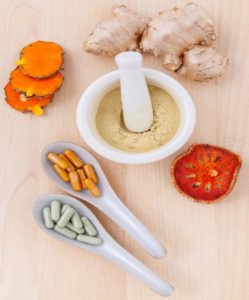
The role of vitamins: A few words
The general consensus today is that balanced as they may be, it is challenging for our meals alone to meet our body’s daily vitamin and mineral requirements. This is further complicated by the fact that so many of us are on life’s treadmill, where slowing down seems to mean speeding up. Food supplementation is certainly a good choice to help keep one’s body working at its optimum. On that note, supplements (vitamins) that are laden with chemicals and other harmful additives profit nothing and, in the end, cause harm. You will want to research the company whose label you purchase or are considering purchasing, to ensure that it is reputable.
Vitamins are essential nutrients. They are part of a necessary process that helps to release energy from foods to keep the skin, nerves, and red blood cells healthy and rejuvenating. The two types of vitamin groups are fat soluble and water soluble. The fat soluble are vitamins A, D, E, and K, found in the fat content of foods. Whole grains, deep green leafy vegetables, egg yolk, fish and vegetable oils, and nuts are examples.

Water soluble vitamins are B complex – thiamin, riboflavin, niacin, folate, biotin, and pantothenic acid, B6 (pyridoxine) and B12 (cobalamin), and vitamin C. They are all easily absorbed and excreted. Unlike the fat soluble vitamins that accumulate and are available for ready use, these vitamins must be regularly replenished.
In summary, the appropriate combinations and amount of multivitamins and mineral supplements will provide the body’s essential needs that the daily diet alone cannot. However, you will want to consult your care provider, before starting, especially if you are taking medications.
This checklist is my gift to you.



